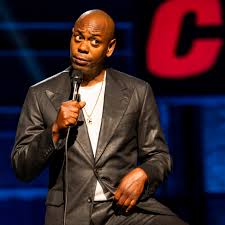Understanding Dave Chappelle’s Impact on Comedy and Society

Introduction to Dave Chappelle’s Influence
Dave Chappelle, widely regarded as one of the most influential stand-up comedians of his generation, has made a significant impact on comedy and cultural discourse. Known for his sharp wit and candid social commentary, Chappelle’s work transcends mere entertainment; it challenges audiences to confront uncomfortable truths about race, identity, and society.
Recent Events and Performances
In recent months, Chappelle has made headlines for his ongoing comedy tours, which have been met with both enthusiasm and controversy. His Netflix specials, particularly “The Closer,” continue to stir debate, provoking discussions on freedom of speech, the boundaries of comedy, and the responsibilities of comedians as cultural commentators. Many fans appreciate his unapologetic approach, while critics argue that some of his narratives perpetuate harmful stereotypes.
Chappelle’s recent performances have sold out across various venues, showcasing his continued popularity. His decision to tackle topical issues, including politics and social justice, has kept his material relevant, prompting audiences to engage with the world around them. For instance, during his recent show in London, he addressed the importance of community and the role of art in advocating for change.
Legacy and Significance
Chappelle’s influence extends beyond the realm of stand-up comedy and into the fabric of modern culture. His groundbreaking show, “Chappelle’s Show,” remains a touchstone for discussions around race and comedy, using humour to reflect societal issues. Chappelle’s ability to weave complex themes into humour allows him to reach diverse audiences and encourages them to think critically about pressing topics.
Moreover, Chappelle’s recognition with multiple awards, including Emmy and Grammy wins, emphasises the impact of his work. His legacy is further cemented by his commitment to ensuring that marginalized voices are heard in his performances, thus broadening the landscape of comedy.
Conclusion
The significance of Dave Chappelle in today’s cultural landscape cannot be overstated. As he continues to push boundaries and provoke thought through his performances, audiences are reminded of the power of comedy as a tool for discussion and healing. Looking ahead, it is likely that Chappelle will continue to evolve as a performer and remain a relevant figure in conversations about race, identity, and the nature of humour itself.









